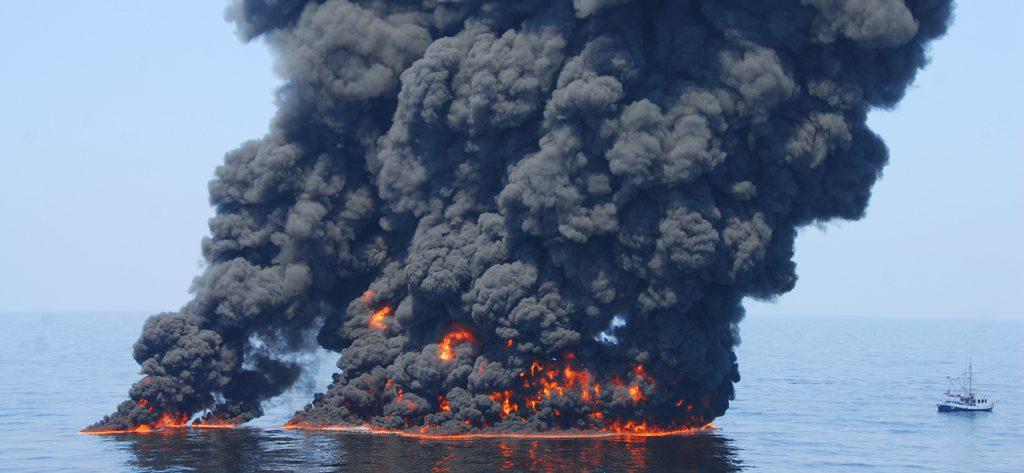Fossil Fuel Companies Need You to Like Them – That’s Why They’re in Your Community
by Mat Hope
22 March 2018

Do you sometimes feel like you’re surrounded by fossil fuels? Look, over there, a fun run (sponsored by Exxon); a school science fair (sponsored by BP); an anti-poverty charity (sponsored by Chevron).
Fossil fuel companies like to be seen to be doing good. But why do they bother? It’s simple really. As they cut jobs and damage the planet, they need a way to persuade people they are good for society. It may seem a bit weird, but that’s why you’ll see their logos splashed across school resources, kids’ sports team’s jerseys, and all kinds of STEM (science, technology, engineering and mathematics) projects.
In fact, new research by investigative journalists DeSmog UK reveals the extent of fossil fuel companies’ involvement in local communities through funding and sponsorship. The ‘greenwash database’, compiled following hours of trawling through Twitter feeds and corporate social responsibility reports, shows that over the last two years five major oil companies have been involved in more than 100 local programmes and events.
Exxon, for instance, has provided funding for the Real Fife Football Club, where they operate a large ethylene plant. The company also sponsors various community activities in the New Forest near its large Fawley oil refinery, including the 2016 launch of a WWI exhibition and the area’s amateur marathon.
BP engages a number of schools through its In The Pipeline programme, including St Margaret’s School for Girls in Aberdeen, where the company has its North Sea headquarters. A member of the school is set to address an industry conference later this month. Shell sponsors the Girls in Energy programme administered by North East Scotland College, also in Aberdeen.
The partnerships allow companies to look like good social actors, while keeping communities locked into economic dependence on the fossil fuel industry.
Chris Garrard, co-director of campaign group Culture Unstained, says government budget cuts put an unfair burden on communities to accept such deals: “I think it places the community in a very difficult position because there are pressures on funding within the arts and pressures on funding within schools and education, so any support that’s being offered is going to be really welcome.”
“It’s very tokenistic. The community may feel they are being offered a significant amount, but it’s a drop in the ocean compared to the billion-dollar budgets of these fossil fuel companies.”
The deals give companies the opportunity to appeal to parents through their kids’ schools, while getting their logo in front of potential future consumers at an early age (even when it’s not needed). They help companies to appeal to younger generations at a time when jobs in the sector are unpopular.
Anna Markova, campaigner with NGO Platform, says it’s important to remember the deals aren’t set up for the good of society – it’s because the corporations think they are good for business: “All these sponsorships are business decisions. They work out which audiences they want to buy the trust of and then think, ‘ok, how do we buy that trust?’ Or they might think a particular MP is important on the foreign affairs committee and want its support, so they choose to sponsor something in that MP’s constituency.”
“One of the longer-term impacts of this overall is that it sucks the life out community events, in the sense that it’s a kind of corporate takeover of something that ought to be in a public space by people, for people.”
But fossil fuel companies aren’t only focused on community-level sponsorship. They’re also involved in supporting much bigger national projects. Some of these partnerships have seen companies receiving special treatment from publicly-funded institutions – such as when Shell sponsored the National Gallery, or the University of Hull and Hull City of Culture worked with BP to reduce negative criticism of their sponsored lectures.
Despite these scandals, companies maintain they have a legitimate role to play through such programmes. According to Shell: “Many of our operations are located close to communities so we work with them to understand their priorities and concerns. Managing our impact on people is essential to being a responsible company.” But ‘managing’ those communities looks uncomfortably like manipulating them; putting a positive spin on a damaging industry.
This is why Big Oil’s activities need to be tracked. Knowing where companies are putting their resources is the first step to holding them to account when they hurt the communities they purport to help. We can’t let them greenwash their way out of their social obligations.
DeSmog UK’s database will continue to be updated as new sponsorship deals are announced. If you know of any fossil fuel sponsorship happening in your community, please get in touch by emailing [email protected].